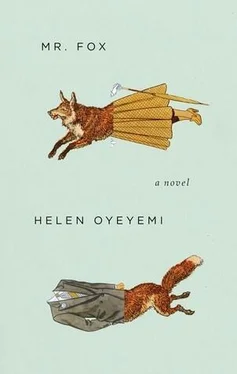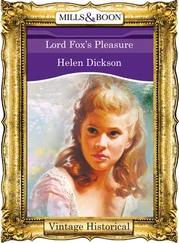Round and round. Blissfully, Mary rolled in the words, propped her head up on some and her heels on others. She liked this man.
13. When I saw you for the first time, I thought you had a secret life. You had your hair up out of the way and you were wearing your reading spectacles and your dress was buttoned up all the way to your chin. Still, I noticed — if you will excuse my noticing — the fullness of your lips, and the way they parted every now and then as if responding to changes in the breeze. And fleetingly, so fleetingly that it’s possible you weren’t aware you were doing it, you moved your hand from your cheek to your neck to the centre of your chest; you held your own waist and smoothed your skirt over your hips. Yes, you looked as if you had a secret, or you were a secret in yourself. I had seen better lodgings farther out — better lodgings for a bachelor, that is. A set of rooms I would have had all to myself, and I could have cycled to work and back. But I rented this house because of the lady who lived in the attic. To see if I could catch her out.
14. I took a lot of my inheritance money and I told everyone that I would be a lawyer. And I came here to study. When I got here I was restless and nothing interested me. At the end of every evening I got very drunk and vowed to give up my studies, and every morning I was back at the books. I am just trying to show you that my nature is not a consistent one. Sometimes I do what I say I’m going to do, but more often I don’t. It’s a failing. The least of my failings, and the only one I feel up to admitting at the moment. The rest will emerge if you choose to see it. I don’t know if I’m the kind of man that is acceptable to you; I have heard that your father was a priest.
15. Shall I tell you how many times I came up these steps while you were typing? Vowing that today would be the day that I asked you to the pictures. And I’d buy you a pound of violet creams, two pounds of them, whatever you wanted. But then I’d hear you at your typewriter, and I’d go away again. I decided that since I could not approach you, I would make you jealous. I asked my sister Elizaveta if it would work, and she said no. She also said you sounded too old for me. My mother and sisters are all very concerned about who I will marry. I am an only son.
16. This Mr. Fox. Is he better-looking than me?
Cold blew onto Mary Foxe’s blood, as if she had no skin at all.
17. My hand is getting tired. That must be why I slipped up just now.
18. You’re slipping yourself, Mary. Good thing you woke up before our little picnic on Murder Hill. A blue-eyed poet with some stories, a good line in wry humility and some English-as-a-second-language bullshit. . Is that all it takes to turn you fickle these days? Never mind. . We’ll pretend it didn’t happen. A hundred years hence (or a hundred washes, whichever comes first) these words will be gone. .
The game was still on.
Miss Foxe referred to herself as a florist, but really she was a florist’s assistant. She swept plant debris off the shop floor, and she wrapped flowers for the customers and did everything else that the shop owner, Mrs. Nash, didn’t feel like doing. Miss Foxe wasn’t allowed to cut and arrange the flowers used in the window display; nor was she allowed to advise people on the perfect floral gift. Miss Foxe knew much more about flowers than Mrs. Nash, but all she could do was listen while Mrs. Nash told the anxious relatives of springtime invalids to send pink azaleas. Evidently Mrs. Nash was not aware that in the language of flowers azaleas meant “take care of yourself for me.” A touching thought, but by giving a sick person a bunch of azaleas you were telling them that they were on their own. Mrs. Nash’s agenda was simply to shift stock. In summer Mrs. Nash prescribed marigolds left, right, and centre — for birthdays, apologies, and romantic overtures — even though those flowers were better as especial comfort to the heartsick. But Miss Foxe kept all that to herself, for fear of losing her job. As it was, Mrs. Nash snapped at her and called her slow and asked her if she was an idiot nineteen times a day. Miss Foxe liked to be near the flowers, especially in winter, when it was easy to forget that there had ever been such a thing as a flower.
Flowers, and thoughts of flowers, were Miss Foxe’s main occupation. She didn’t especially care for motion pictures; she found them too noisy. She would have liked to have had friends to lend books to and borrow pie dishes from. But it was difficult for Miss Foxe to reach that stage with anyone. She spoke so quietly that people couldn’t understand what she was saying and quickly lost patience. When she paid for things in shops, the change was invariably placed on the counter instead of in her hand. Miss Foxe occasionally wondered if she had spent her life approaching invisibility and had finally arrived at it. She encouraged herself to see her very small presence in the world as a good thing, a power, something that a hero might possess.
Miss Foxe’s other passion was fairy tales. She loved the transformations in them. Everybody was in disguise, or on their way to becoming something else. And all was overcome by order in the end. Love could not prevail if the order of the tale didn’t wish it, and neither could hatred, nor grief, nor cunning. If you were the first of three siblings, then you were going to make a big mistake, and that was that. If you were the third sibling, you couldn’t fail. Here is the truth about everything, Miss Foxe would think, after a night with Madame d’Aulnoy, or Madame de Villeneuve.
Flowers and fairy tales were all very well, but they began to take their toll on her. Independently and in unison they made insinuations, the flowers and the fairy tales. When Mrs. Nash was being especially nasty, Miss Foxe imagined herself surrounded by leafy branches that changed as her tears dripped onto them — glossy green tips shrank and smoothed into skin; the branches gripped her firmly, like arms. .
One morning Miss Foxe gave in. It was high time she found herself a companion. But how, and where? She knew what kind of man she wanted: someone passionate, someone who would understand her. But she didn’t meet people. Every man who came into the flower shop was invariably attached, or had someone else in mind.
Miss Foxe went to bars, and was overlooked with a thoroughness that chilled her marrow. She had chosen seedy bars on purpose, bars where (she had heard Mrs. Nash say) the men were voracious and anything went. And it was true. Even cross-eyed girls who laughed like hyenas were bought drinks. Anything went but Miss Foxe. She wasn’t bad-looking — it was just that it took a great deal of effort to be able to actually see her, especially in noisy, crowded places.
Miss Foxe tried libraries, but talking wasn’t allowed.
Miss Foxe tried bookshops but was frightened off every time she saw the titles of the books the interesting-looking men happened to be holding. Such weighty and joyless words: Fear and Trembling, Anatomy of Melancholy, The Nicomachean Ethics, and the like.
One afternoon Mrs. Nash barked at her. “You’ve been late back from lunch five days running now. Explain yourself. And don’t fob me off with any more lies, or you’ll be out of work.”
Miss Foxe explained that she had been trying different things.
“What does that mean? Spit it out.”
“I’ve been looking in the bookshops for a gentleman friend,” poor Miss Foxe stammered.
Mrs. Nash threw her head back and laughed for ten minutes without stopping. Then she said, “You’d better advertise.”
And that is what Miss Foxe did. In a national newspaper, no less.
Читать дальше












